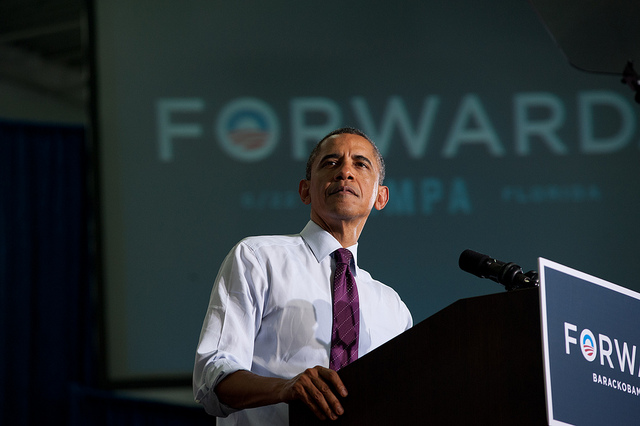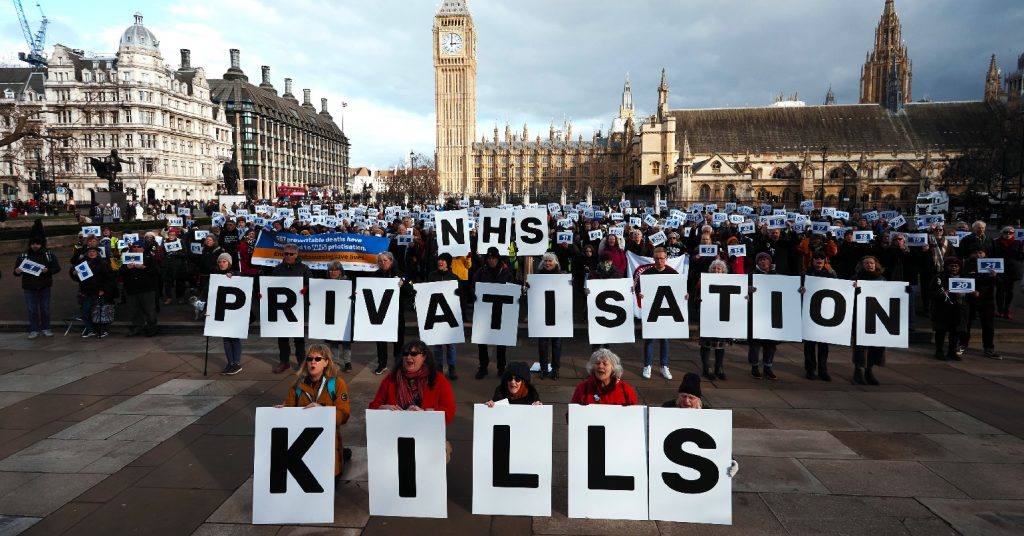The Parallels for UK Labour from US Democrats

The 2014 midterms were a massive rebuke to Obama and US Democrats. In state after state Democrat Senators, Congresspeople and Governors were wiped out, far beyond pollsters expectations. Obama’s last two years in Presidency look to be ridden with Republican opposition and messy compromise.
As a lesson in politics the midterms should carry worrying signs for UK Labour. There are huge similarities in the campaigns that UK Labour and the Democrats are running, and the signs are that Labour’s campaign is just as likely to fail. The parallels between the campaigns are perhaps unsurprising when Labour have imported David Axelrod and other Obama staffers to guide the campaign.
In the midterms Democrat campaigns leaned heavily on social issues, focusing in on portraying Republicans as about to launch an all-out war on women. Democrats posited their opponents (with just grounds) as hell-bent on withdrawing access to abortion, contraception and healthcare. Similarly Labour’s central plank of their General Election campaign is protection of the NHS. Loudly they (rightly) declare that the Tories cannot be trusted with the NHS, but is there any evidence it works as a campaign strategy?
From Heywood & Middleton the lesson is a stunning no. Labour ran a shallow and narrow campaign focused in on portraying the Tories as the enemies of the NHS, not realising they were giving voters no reason to vote Labour. Depreciating the lot of the Tories gave Labour’s core vote no reason not to vote UKIP. A quick trawl through Labour campaigns reveals a bevy of attack messaging on the Tories and Lib Dems, but a dearth of positive messaging and reasons to vote Labour.
Just like the Democrats Labour are stuck trying to obfuscate the fact that they have no answer for the nation’s core economic woes. Beyond tinkering on the fringe of the structure of the economy, offering meager minimum wage increases, neither the Democrats nor Labour have the answer to people’s core concerns. People don’t see a Labour party as able to deliver jobs nor address sagging wage packets, and it’s why Labour are less trusted on the economy than the Tories. A lack of clear messaging is seeing too much of Labour’s voters drifting elsewhere.

Equally people just don’t see Ed Miliband as prime minister. With backbenchers mustering for an ouster and Miliband even more unpopular than Nick Clegg, Ed has not been a popular Labour Leader. Labour have been quick to brush aside Miliband’s dismal approval rates, but the US elections show there is no bigger drag on an election than your figurehead.
State by state voters swapped popular or at least less hated Democrats for disliked or mistrusted Republicans, because of their deep disappointment in Obama. It carries a worrying portent for Labour that no matter how popular a local candidate could be, voters could abandon Labour MPs and PPCs because of Miliband.
For the Greens there is a huge opportunity. Even in the US poorly resourced Greens had record breaking results in New York and Ohio. For the better resourced Greens in the UK it shows a clear message on people’s day to day concerns could garner breakthrough results. The Greens can outflank Labour by offering an alternative to austerity, and painting out a clear way of reshaping our economy. Natalie Bennett’s clear focus on jobs you can build a life on, with a compulsory living wage, thousands of Green jobs and more rights at work could well resonate.




But the point you miss is that Labour won in Heywood & Middleton while the Democrats lost. Sure, this is due to the system, with open primaries the effect of internal splits can be contained much better in the general election.
But as things stand in Britain, in all likelihood we will have a Labour prime minister heading a minority government and relying on LibDems and Nats (and hopefully Green) for his majority.
Also note that while Labour’s campaigning has been awful, Milliband’s policy analysis has actually shown him the most progressive major Labour leader for a long while.
You can make very fair arguments against Labour’s plans ecologically, or say that they do not go far enough, but is unfair to call their plans meagre. They are proposing wide-sweeping economic changes; a large house building program, a significant rise in the minimum wage (though of course its no £10!), and halving the tax on the lowest income bracket, as well as numerous other anti-trust policies and increased regulation. The truth is they are offering a keynesian demand-based alternative to the Conservative’s austerianism, but both of these strategies are based on the premise that growth is good. Most people agree with them, and you would need the greens to alter people’s opinion on this before they are seen as economically credible. Labour are trusted less than the Tories on the economy because people believe the falsehood that economies are moral entities, and pain now will lead to prosperity later. Within the capitalist system, Labour’s social-democratic plan is the right one. It does not however, account for the planet, because more demand will lead to more consumption.
Excellent piece Benali, and one that taught me quite a bit about some of the details of the midterms that had eluded me so far. Allow me to disagree on one key point: I know Obama is widely targeted as the reason why the Democrats are failing, but in fact no matter who would be sitting in the US presidency chair would be just as hampered by the capitalist set-up that he or she is called to preside upon. How can we prove that another figure head could have been a game-changer in a system that is boycotted by huge industrial and military powers? I think it’s important to remind ourselves that it is the global economic system which is failing and that an African American man cannot and should not be blamed for this failure.